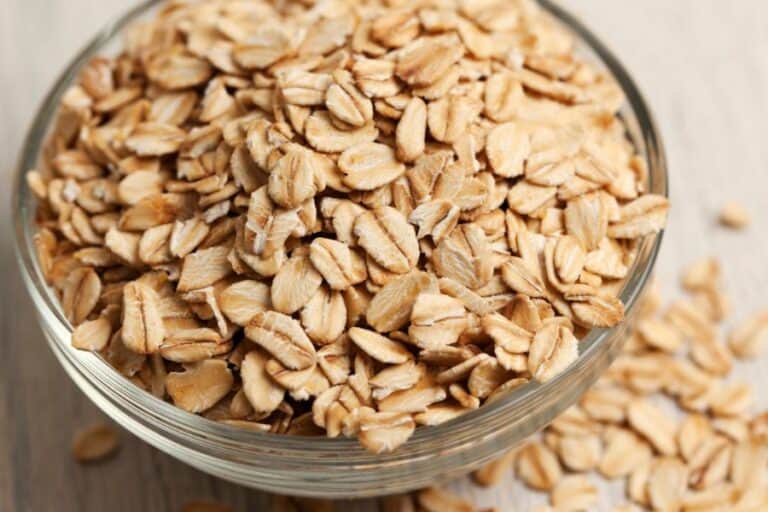Does Coffee Make You Gain Weight?

Coffee and weight | How coffee causes weight gain | Coffee and belly fat | Coffee for weight loss | Caffeine RDA | Tips
Coffee is one of the most widely consumed beverages worldwide. While coffee is known to offer several health benefits, many people wonder if it could also contribute to weight gain.
Does coffee make you gain weight? No, coffee doesn’t make you gain weight unless your go-to coffee drink is a Grande Mocha Frappuccino with extra whipped cream at Starbucks.
So what is the scientific link between coffee and unwanted weight gain? Here’s an in-depth analysis:
Does coffee make you gain weight?
No. Coffee does not make you gain weight. A large body of scientific studies suggests otherwise.
Coffee, in its basic form(plain black coffee), may actually promote weight loss by increasing a metabolic process known as thermogenesis [1]Science Direct: Thermogenesis.
Coffee, due to its caffeine content, can increase resting metabolic rate and energy expenditure. One study observed [2]PubMed: Normal caffeine consumption: influence on thermogenesis and daily energy expenditure in lean and postobese human volunteers a 3-4% increase in resting metabolic rate and an 8-11% increase in energy expenditure in post-obese subjects.
Another systematic review and meta-analysis of randomized controlled trials showed that caffeine intake may result in weight, BMI, and body fat reduction, [3]PubMed: The effects of caffeine intake on weight loss: a systematic review and dos-response meta-analysis of randomized controlled trials with every doubling in caffeine intake associated with a 22% reduction in weight, 17% reduction in BMI, and 28% reduction in body fat.
In the short term, moderate levels of coffee consumption can potentially promote thermogenesis and aid weight loss. However, more research is needed to fully understand the long-term effects of caffeine on weight gain or loss.
How coffee may cause weight gain?
Coffee itself is not directly linked to weight gain. In fact, due to its caffeine content, coffee can increase resting metabolic rate and energy expenditure in the short term, potentially aiding in weight loss.
However, weight gain can occur if coffee is consumed with added sugars, creamers, or high-calorie additives. Moreover, excessive amounts of coffee intake can lead to disrupted sleep patterns and increased stress hormones, which in turn, may affect gut health, metabolism, and appetite regulation.
Here’s a closer look at the factors that may cause coffee to promote weight gain:
1. Fattening coffee additives
Certain coffee additives, such as added sugars, creamers, or high-calorie syrups, can contribute to weight gain when consumed in excess. These additives can significantly increase the calorie content of coffee, leading to increased calorie intake and potentially contributing to weight gain over time.
2. Unhealthy food pairings
When paired with unhealthy food choices, coffee can contribute to weight gain. For example, drinking coffee with high-calorie pastries, sugary snacks, or fried foods can lead to increased overall calorie intake, potentially resulting in weight gain.
3. Consuming large amounts of high-fat keto coffee
Consuming large amounts of high-fat keto coffee, which typically includes butter and/or coconut oil, can potentially contribute to weight gain due to its high caloric content. While coffee itself is relatively low in calories, the added fats in keto coffee can significantly increase the overall calorie intake, leading to weight gain if not balanced with other dietary considerations and physical activity.
4. Drinking coffee in place of a meal
Drinking coffee in place of a meal can potentially lead to weight gain as it may not provide the necessary nutrients and energy for a balanced diet. Coffee is low in calories and may not satisfy hunger as effectively as a well-rounded meal. Replacing a meal with coffee can result in increased hunger, overeating, and potential weight gain. It’s important to prioritize a balanced diet and not rely solely on coffee as a meal replacement for weight management.
5. Caffeine may impact your hormones
Caffeine can increase the release of stress hormones like cortisol, which can disrupt insulin sensitivity and metabolism. Additionally, caffeine can stimulate appetite and decrease satiety, leading to increased calorie consumption.
6. Caffeine may disrupt healthy sleep patterns
A meta-analysis of 11 studies involving nearly 200,000 participants found that short sleep duration was significantly associated with a higher risk of obesity.
Not sleeping for enough hours can result in reduced leptin and elevated ghrelin levels [4]PubMed: Short sleep duration is associated with reduced leptin, elevated ghrelin, and increased body mass index, increasing appetite and contributing to a higher BMI.
Caffeine, found in coffee, may disrupt healthy sleep patterns, potentially leading to weight gain. Long-term sleep disruption may affect metabolism and appetite regulation, potentially increasing the risk of weight gain and obesity.
Can caffeine cause belly fat?
While caffeine may contribute to weight gain, it is unlikely to cause belly fat specifically. Belly fat accumulation is typically the result of a combination of factors, including genetics, diet, lifestyle, and hormonal imbalances.
Can I drink coffee if I want to lose weight?
Yes, coffee may aid in weight loss when consumed in moderation as part of a healthy diet and lifestyle. Here are some ways in which coffee may help with weight loss:
- Thermogenic effect: Coffee has a thermogenic effect, which means it can increase body heat and stimulate the body’s fat-burning mechanisms. This can potentially aid in weight loss by promoting the breakdown of stored fat for energy.
- Increased metabolism: Caffeine, a natural stimulant found in coffee, can boost metabolism, increasing the number of calories burned by the body at rest. This can potentially lead to a higher rate of calorie expenditure, which may aid in weight loss.
- Stimulates brown adipose(fat) tissue: Drinking coffee increases the temperature of the supraclavicular region, where brown adipose tissue (BAT) is located, indicating thermogenesis. This suggests that caffeine may promote BAT function and lead to weight loss in adults [5]Nature: Caffeine exposure induces browning features in adipose tissue in vitro and in vivo
- Appetite suppression: Coffee has been shown to have appetite-suppressing effects, which can help reduce hunger pangs and decrease overall food intake. This can potentially lead to a decrease in calorie consumption, aiding in weight loss efforts.
- Enhanced physical performance: Coffee can improve physical performance by increasing adrenaline levels in the body, which can help mobilize fat stores for energy. This can potentially improve exercise performance and increase the overall calorie burn during physical activity, contributing to weight loss.
- Diuretic effect: Coffee is a natural diuretic, meaning it can increase urine production and help reduce excess water weight in the body. While the weight loss from diuretic effects is temporary and primarily related to water loss, it may provide a short-term reduction in overall body weight.
Ideal levels of caffeine consumption
According to the Food and Drug Administration(FDA), [6]U.S. Food and Drug Administration: Spilling the Beans: How Much Caffeine is Too Much? moderate caffeine intake of up to 400 mg per day is considered safe for healthy adults.
That being said, the recommended daily intake of caffeine may vary depending on age, sex, and individual sensitivity to caffeine. It is best to start with a low dose and gradually increase as tolerated.
Tips for healthier coffee/caffeine consumption
To enjoy coffee while minimizing the risk of weight gain, consider the following tips:
- Use unsweetened milk or creamer: Avoid adding sugar or flavored syrups to your coffee. Instead, use unsweetened milk or creamer to add creaminess without the added calories.
- Use natural, no-calorie/low-calorie sweeteners: If you prefer sweetened coffee, consider using natural, no-calorie/low-calorie sweeteners such as stevia or monk fruit.
- Sprinkle in some cinnamon: Cinnamon complements the flavor of coffee while helping you lose weight. This sweet yet fiery spice reduces the need for sugar in your coffee. Additionally, it has been observed to aid weight loss and support obesity management. A study published in a journal of the American Diabetes Association [7]American Diabetes Association: Cinnamon Improves Glucose and Lipids of People With Type 2 Diabetes has demonstrated that consuming 1, 3, or 6 grams of cinnamon per day may also help to regulate blood sugar levels.
- Add vanilla extract or unsweetened dark chocolate: Vanilla extract can add flavor to coffee with fewer calories. Again, a dash of vanilla extract can also reduce the need for added sugar in your coffee. Adding a small piece of unsweetened dark chocolate to your coffee can add richness, taste, and flavor without adding many calories.
Conclusion
While consuming coffee in moderation as part of a healthy diet and lifestyle may aid in weight loss, excessive consumption or consumption of high-calorie coffee drinks may result in increased weight.
By making small adjustments to your coffee habits, such as consuming it in moderate amounts and choosing healthier additives, and food pairings, you can enjoy the many benefits of coffee while minimizing the risk of weight gain.
References







